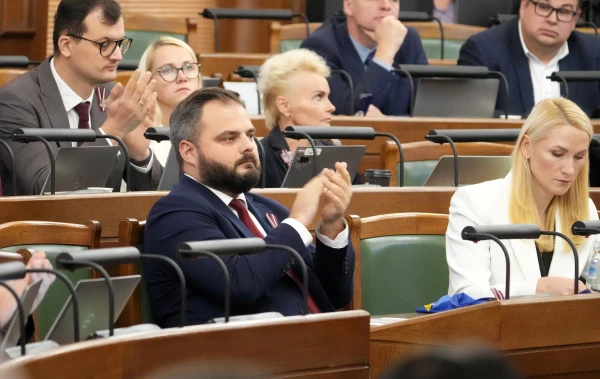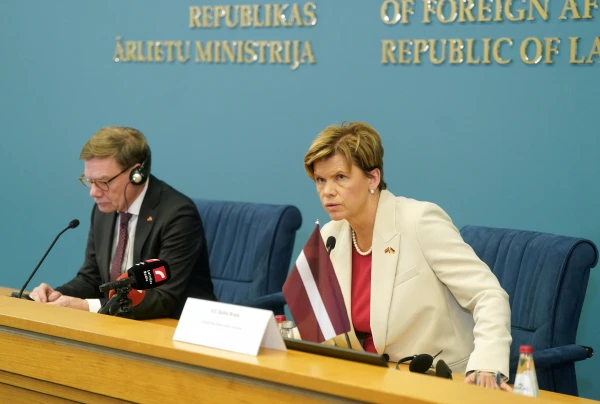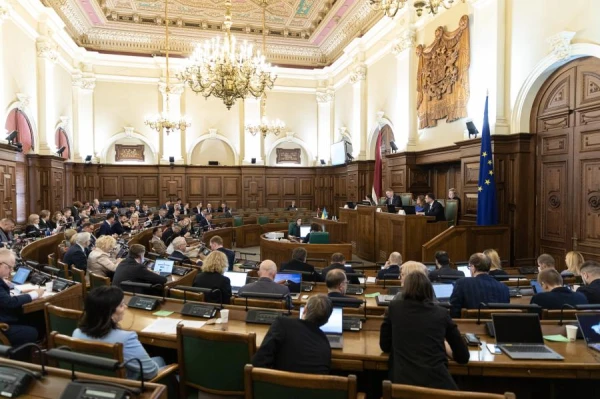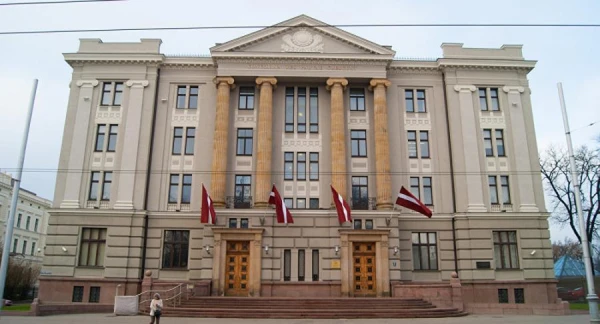
After bickering fiercely, Latvian politicians have nevertheless found the strength to compromise. At the suggestion of President Edgars Rinkēvičs, the adoption of the bill to denounce the Istanbul Convention has been passed to the next parliament.
They Backed Down
Looking at how passionately political opponents struck each other with arguments and branded each other with contempt and shame, it seemed that the current government had little time left. But no, peering into the abyss, the parties got scared and backed down.
Who exactly came up with such an elegant way out of the situation is hard to say, but when Rinkevics handed the controversial bill back for reconsideration in parliament, he was the first to publicly voice such a proposal – to postpone the consideration for a year, until the new parliament convenes.
Wise, to say the least. However, it is possible that someone else suggested this idea to the president. Perhaps he consulted with some politicians. But in any case, everyone eagerly seized this straw. It allows the conflict participants to save face, without collapsing the government, which is not particularly beneficial for anyone right now.
Rocked the Boat and Ran Away
It is amusing that in the vote in the parliament for the postponement of the denouncement, the "green farmers" did not participate, the very ones who essentially started the whole fuss. They rocked the boat to the point that water was already coming on board, and then they just jumped off.
However, they are likely pleased that the matter has been shelved for now. It is unlikely that they were particularly pleased by the thousands of protesters who came to the parliament and Dome Square. Such mass displays of public anger have not been seen in Latvia for a long time. And this anger mainly fell on their "green" and "farmer" heads.
What can be expected from the opposition – it is, after all, the opposition. Not to mention that the "green farmers" joyfully voted for the convention two years ago. No one has forgotten that, as it turns out.
Of course, the "green farmers" and other parties that decided to score points on the denouncement can console themselves with the thought that their voters understand and approve, just not as passionate. Perhaps so, but this passivity of the opponents of the Istanbul Convention strongly resembles indifference. There were incredibly few "denouncers" who took to the streets, just a dozen people. A hint that in the next elections to parliament, supporters of the "green farmers" and other "anti-Istanbul" groups will also be few. However, let’s wait for the next party ratings; it will be interesting to see them after all this turmoil.
Provocations at the Border
While in Latvia they were breaking spears over domestic violence and gender issues, a little further south, no less dramatic events were unfolding. Lithuania's warnings to Minsk went unheeded, and Vilnius closed the border with the restless neighbor for a month, deciding to continue hybrid attacks by launching air balloons with supposedly contraband.
Everyone understands that where there is a month, there is also a year. Both sides incur losses – both Lithuania and Belarus. Minsk has also imposed retaliatory sanctions – banning the entry of trucks from the EU.
Some reports indicated that by closing the border, Lithuania could lose a billion euros a year. But in this case, calculating financial losses makes no sense – it concerns the lives of air passengers who were under real threat. Of course, closing the barriers will not stop the balloons, but Vilnius could not ignore such a challenge, and the response had to be tough.
Interestingly, after the border was closed, the launch of balloons significantly weakened. For how long? Perhaps not for long. It is clear that Minsk has taken a pause for reflection – to continue provocations or to try to resolve the conflict in another way. We shall see.
A Repetition of History?
Such tension at the border between the two camps has not been seen for a long time, since the times preceding World War II. Back then, the genre of provocations at the border was a favorite pastime of the leadership of various states. In the post-war period, the USSR did not test the borders of capitalist countries for strength. The Soviet country behaved solidly in this regard, although it was guilty of mistakenly shooting down civilian airliners from time to time. The West also did not encroach on Soviet borders. Everyone understood perfectly what such attempts could lead to.
Does the growing tension at the borders mean that war awaits us? Not necessarily; historical parallels do not work in practice. Any historian will tell you that. The current situation resembles that which existed before a major war, but only partially. There are far more differences.
After Lithuania closed the border with Belarus, the latter was left with only three windows (portholes) to the West – three border control points. Two with Poland and one with Latvia. Accordingly, cargo flows, as well as the remaining people, will go through them. It is even possible that our country could earn something from this, if, of course, the Latvian authorities do not decide to close their last border control point with Belarus in Pāternieki. As we understand, that is not too far off.
The Poles Set an Example
Meanwhile, Poland has surprised again. Determined Poles announced that they would build their own "wall against drones". This initiative was previously proposed by EU authorities, but as usual, the European Union has yet to agree on specific measures for implementing this idea.
Latvia, on the other hand, will likely wait for a pan-European solution, as its own resources are insufficient. In this regard, one recalls how the Poles built a wall at the border in a matter of months, which is incomparable to the Latvian one – much higher and sturdier. In Latvia, however, the construction of this facility has not been fully completed, although it started several years ago. Indecision and bureaucracy kill any initiatives here.
The slowness of the Latvian authorities is simply astonishing. For example, after the operation of Riga Airport was paralyzed due to the appearance of suspicious drones, it took many weeks before the police were allowed to shoot down harmful drones. The very fact that the police did not have such powers is surprising, but even more astonishing is that resolving such a crucial issue takes so much time.
Then, of course, it turned out that there was nothing to shoot down the drones with, and then everyone learned that no one even knew how to do that, and so on. In general, the office writes.














